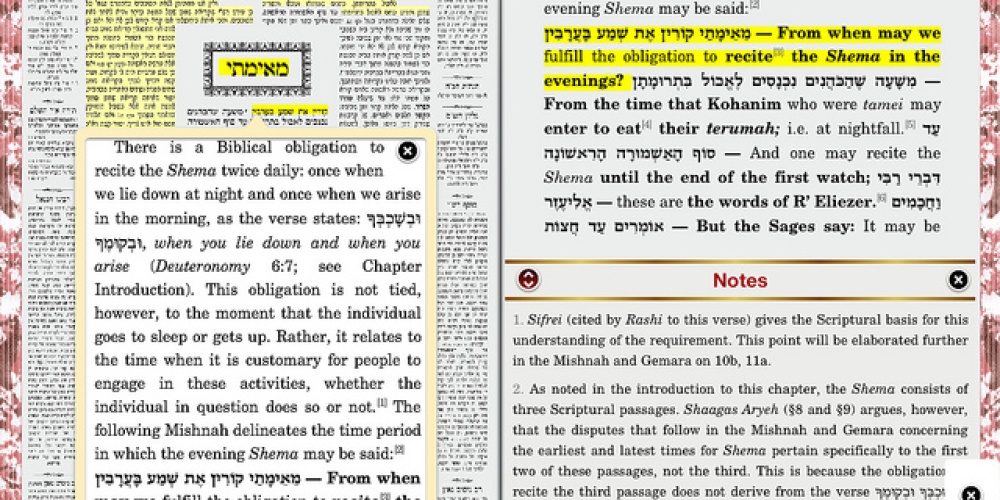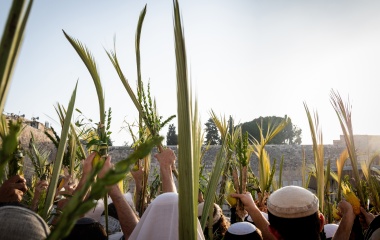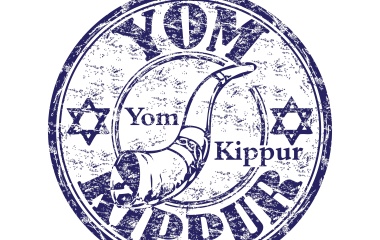
"I recall with distress that which befell me; with three blows He struck me this month...He surrounded me on the eighth day with darkness, left and right. Behold, all these three [days] are established as a fast, for the Greek king forced me to write in the Greek religion" (Opening of Selichot for the tenth of Tevet).
The widespread translation of Torah teachings--not to mention the Torah written in the first place in other languages--speaks to its popularity and enduring relevance. And contrary to popular belief, translations are not new. Our Sages understood Moshe's "explaining the Torah" to be a reference to the fact that the Torah was to be translated into seventy languages (see Rashi to Devarim 1:5 and 27:8). And for hundreds of years, the public Torah reading was conducted line by line as the Torah was first read in the original and then by a meturgaman, an official translator who explained the verse in the Aramaic vernacular. So important was proper understanding--and so widespread was a lack of full Hebrew comprehension--that Jewish law obligates one to read the weekly parsha twice in the original and once in targum, i.e., the (Aramaic) vernacular.
Why, then, did our Sages introduce a fast day when the Torah was translated into Greek? The translation of the Torah itself and its vast literature may be a necessity, and is of wonderful benefit to many, but that alone makes it worthy of fasting and lamentations. How could it be that Jews do not care to learn the language of our people, the language with which G-d communicated to Moshe, the language used by G-d to create the world? "In ten [Hebrew] sayings was the world created" (Avot 5:1). The Rambam (Avot 2:1) [1] understands the phrase "a light mitzvah" in the Mishnaic exhortation to "be as careful with a light mitzvah as with a heavy one" as referring to speaking Hebrew.
But moral exhortations aside, there is no such thing as an accurate translation. There are more accurate translations and less accurate translations, but no translation of any text can capture the nuance, the cadence, or the allusions contained in the original text. The more nuanced and layered the text, the more incomplete the translation will be. And when translating poetry--as the Torah defines itself (Devarim 31:22)--the task can become impossible so as to make it a futile endeavor[2].
The preponderance of so many books in the vernacular has at times led some to a skewed perspective--especially when dealing with Jewish law. Torah is meant to be a living oral tradition taught from parent-teacher to child-student. Even writing it down in the "original" was considered a violation of Jewish law, allowed only as a (permanent) emergency measure as "a time has come to act for the Lord; they have nullified your Torah" (Gittin 60a). Only a live teacher can properly express the proper emphasis, nuance, and complexity of any given topic. This difficult challenge leads authors to avoid even attempting such, and the result is a presentation of the most stringent views, lest one misapply any leniency (with more lenient views often buried in the Hebrew footnotes). This problem is compounded when such books are read by those with relatively weak backgrounds (the target audience of many of these books). Lacking the knowledge to read sources in the original, they are oblivious to other views--unaware of the Talmudic teaching that "the strength of leniency is greater" (Beitzah 2b), and can even come to look down upon their more lenient (and learned) brethren.
One hears over and over how one should ask a Rabbi for halachic guidance; sadly, the more material made available in English, the less this will happen. And if I may say so, if one does not understand the Mishnah Berurah in the original, one would be better served by learning something else rather than studying its English translation.
However, it is not only the uninitiated for whom translations may be a double-edged sword. They run the risk of being a crutch used by those who should not be using them in the first place. Given the opportunity, how many people will continue using a Jastrow when ArtScroll is a shelf away? Yes, it's a little more work; but little is gained if little effort is expended. I know from personal experience that I better recall material which I struggled through with Jastrow in hand than those pages I read in translation. Torah study is meant to require great effort; so much so, that proper Torah study actually makes us physically weaker (Rashi Bava Metzia 84a s.v. vlo matzi). Like all great disciplines, it requires hard work and precision, and shortcuts just won't cut it. Only study in the original texts can begin to accomplish such--and that means expertise in Hebrew and Aramaic. How sad when students who have spent many years in yeshivot walk around with an English Talmud!
There is much to celebrate when perusing the shelves and shelves (or, shall we say, website after website) of Torah books in the vernacular. But there is much that should cause a sad cry about this state of affairs. Even if we no longer fast on the 8th of Tevet, let us, at least once a year, lament the translation and hence, distortion, even if ever so slight, of Torah.
[2] Please see the absolutely beautiful analysis of the Netziv as he explains in which ways the Torah is poetry (Introduction to his commentary on the Torah). I have summarized them--in English and hence, inadequately here.



